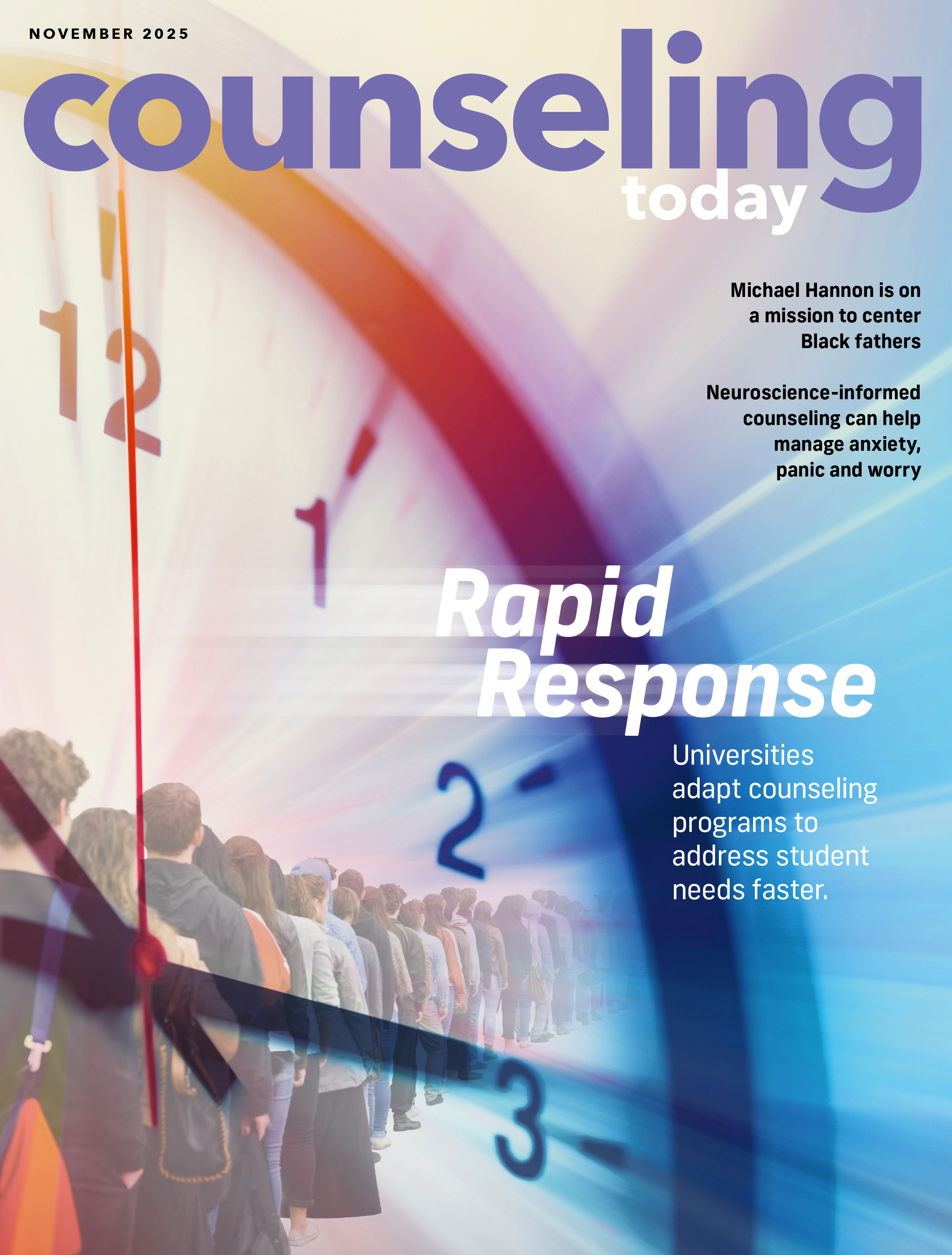Explore Counseling Today Articles
-
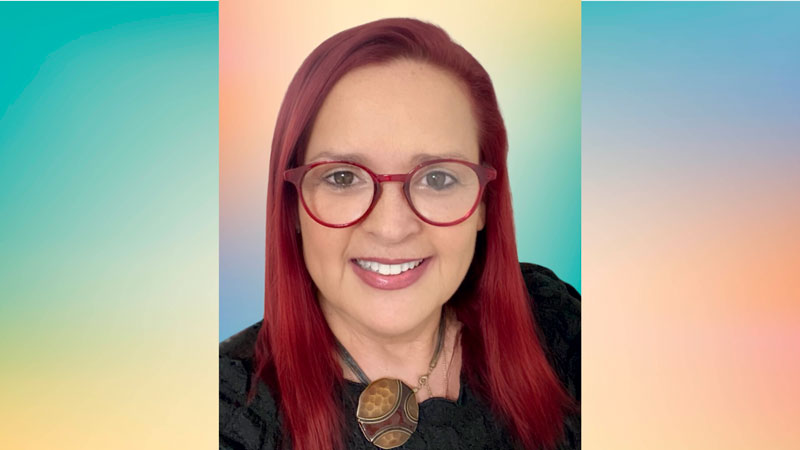 From Dream to Reality
From Dream to RealityLourdes Araujo’s path into counseling was a long, hard-fought one, but she’s been helping people her entire life
-
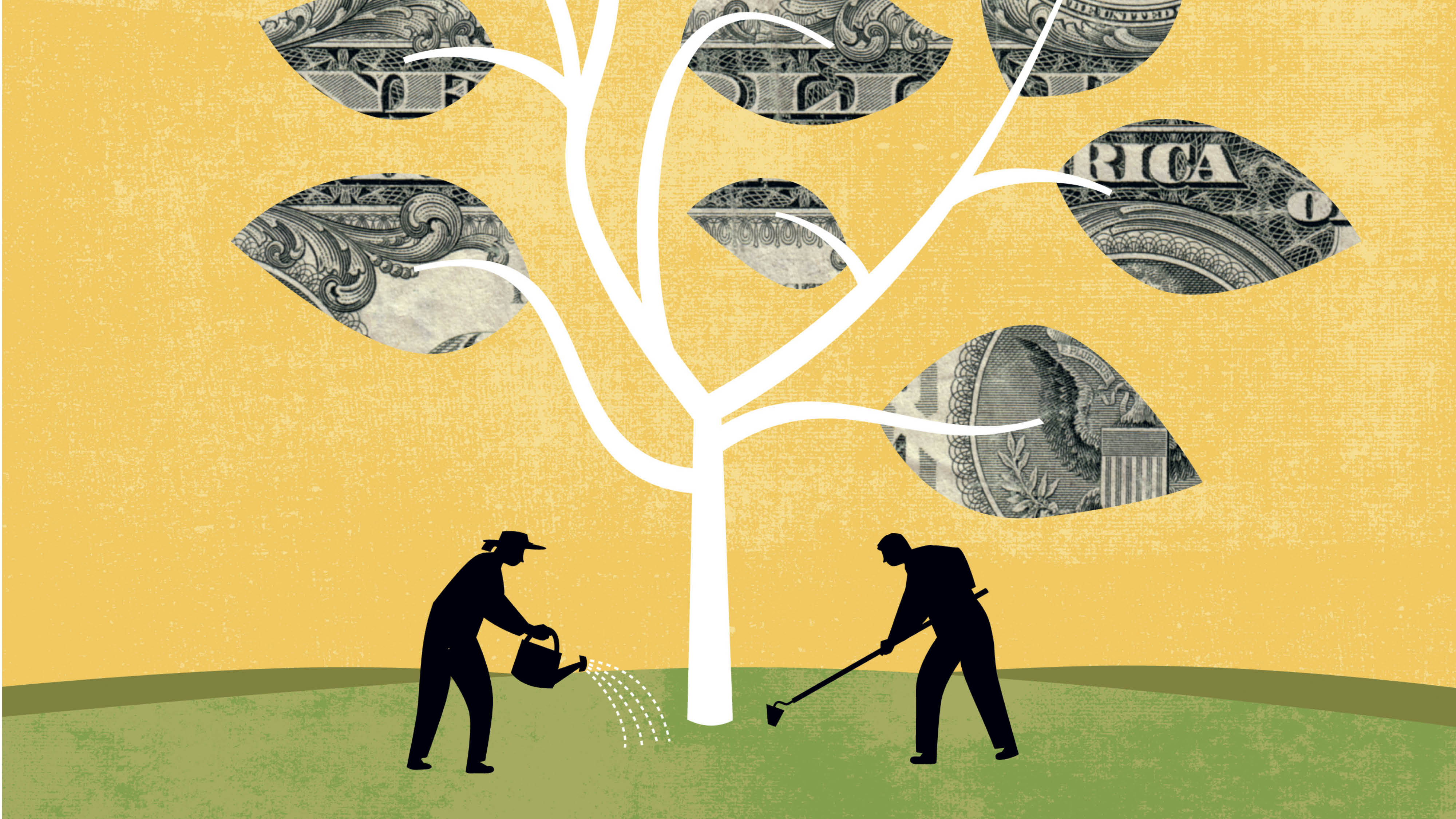 Growing a Rewarding Career
Growing a Rewarding CareerCounselors share how they have built fulfilling careers despite challenges.
-
 Counseling Clarity
Counseling ClarityStephen Sharp became a middle school counselor after a lightbulb moment showed where he could have a greater impact.
-
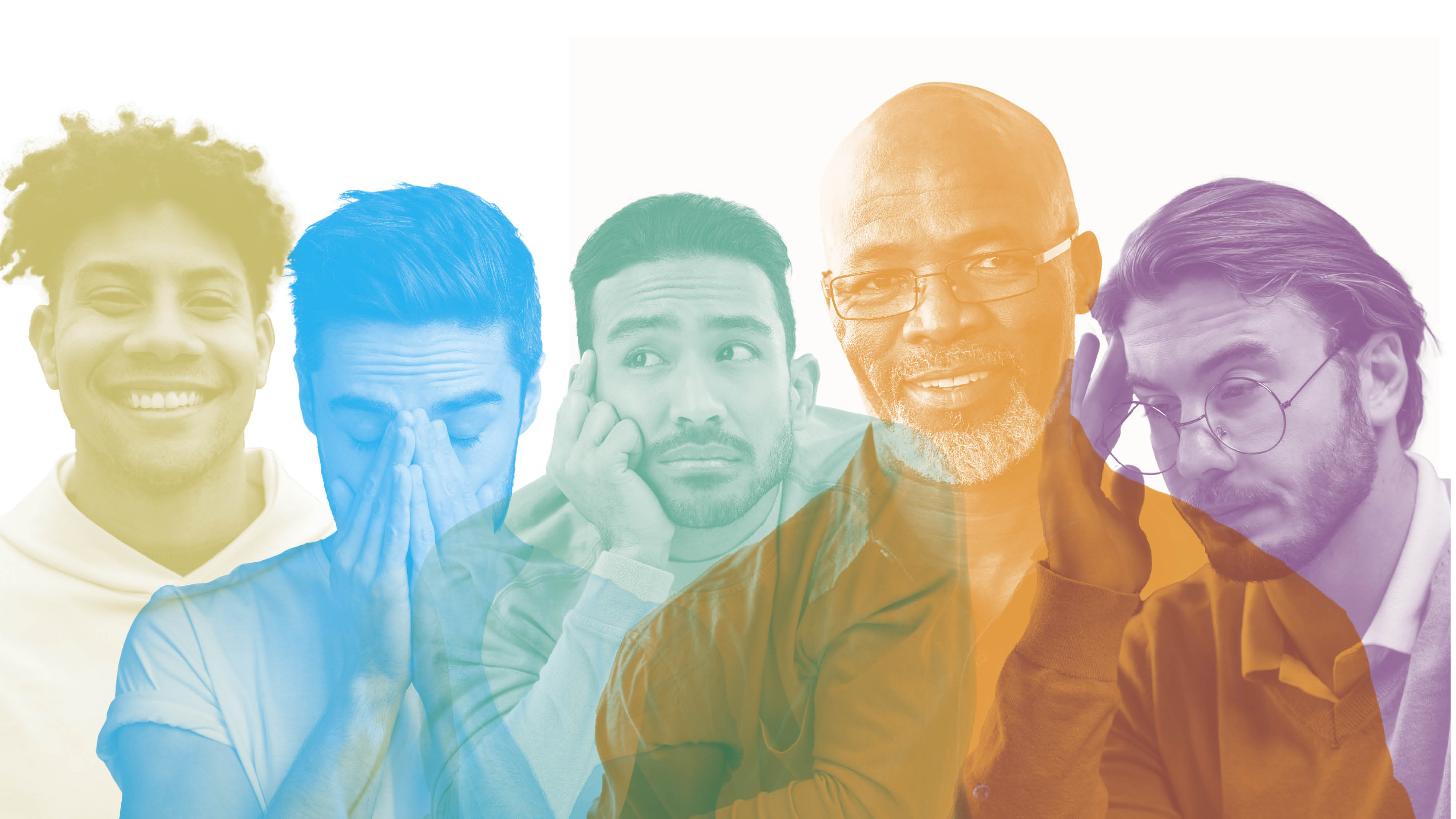 Rethinking Masculinity
Rethinking MasculinityHow gendered norms and expectations affect men’s mental health.
-
 Adoption Complexities
Adoption ComplexitiesCounselors can help transracial and transnational adoptees heal the wounds from separation and being raised in an all-white world.
-
 Leading the Way
Leading the WayDeveloping and nurturing the qualities that make a good leader.
-
 The Explorer Spirit
The Explorer SpiritNew ACA President Christine Suniti Bhat’s counseling career has expanded over three continents.
Tags: -
 Path to Discovery
Path to DiscoveryAs the demand for counselors continues to grow, so does the wide array of career opportunities.
-
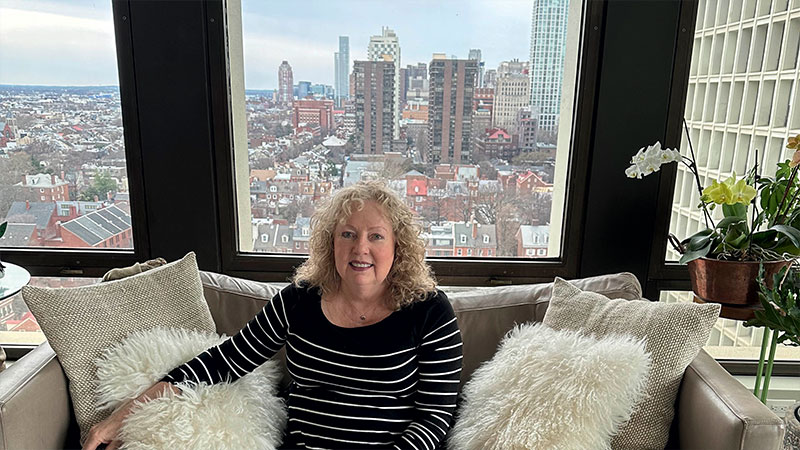 Choose Your Own Adventure
Choose Your Own AdventureDiane R. Girardot, LPC, has had a career with more than a few literary detours. It’s a trek that has included jobs with newspapers large & small, a stint in Mexico City, a couple of degrees, and now a sustained private counseling practice in Pennsylvania.
-
 Bridging the Gap
Bridging the GapFor people who want to return to the workplace after a gap or extended break, the search for the right job can come with serious doubts about getting back into the game.
Search CT Articles
Filter CT Articles
Current Issue
Sign Up for Updates
Keep up to date on the latest in counseling practice. Sign up to receive email updates from Counseling Today.

